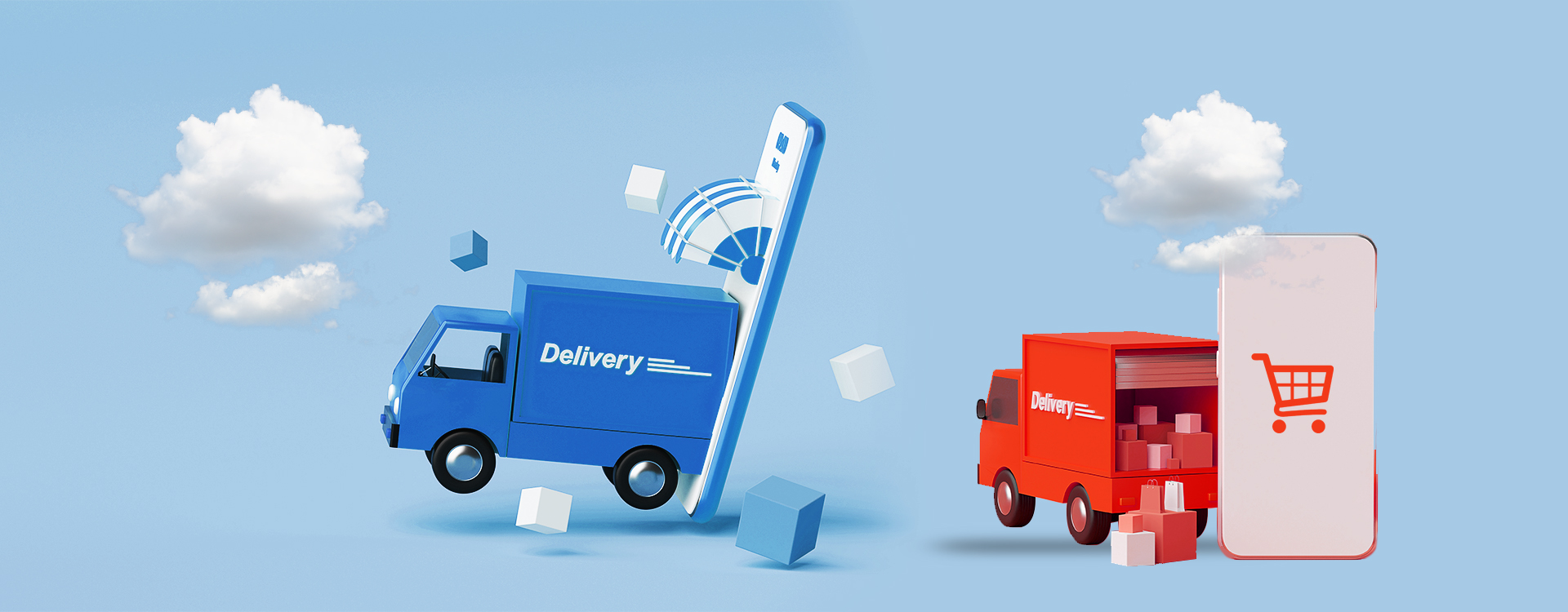While the Indian e-commerce sector’s skyrocketing growth has been the town’s talk for the past year, its biggest beneficiary has been the adjacent e-commerce logistics sector. India’s e-commerce logistics industry is growing very well. Due to the enormous investments in logistics by e-commerce giants such as Flipkart, Amazon, Jio Mart and others, logistics associated with e-commerce is moving towards an organised market.
According to the latest report titled “India E-commerce Logistics Market (2020 to 2027)” by Research and Markets, India’s market in this segment is expected to reach $11.48 billion by 2027 at an overall annual growth rate of 18.8%.
Trends and Forecasts for Future Development
With the growing e-commerce demand from Tier -2 and lower-lying cities and increasing consumer expectations for express delivery services, the e-commerce logistics industry is expected to proliferate.
‘‘
In terms of domestic e-commerce delivery, it is expected to record the highest CAGR rate between 2020 and 2025.
As per different end-users, the market is divided into B2B and B2C. The dynamic growth drivers of the industry are the high internet penetration, the increasing number of smartphone users, the rise in online shopping prices, increase in demand, innovative technology and fast delivery services.
COVID-19 Outbreak Has Spurred the Growth of E-commerce and Logistics Industry
According to a report titled “E-commerce Trends Report 2020” released by Unicommerce, the total number of orders in India’s e-commerce industry has increased by 17% since the beginning of the COVID-19 outbreak. Clearly, the COVID-19 pandemic has contributed to the development of the logistics e-commerce industry. Due to increased demand, e-commerce participants are looking for alternative storage locations to improve business continuity and reduce delivery times.
As awareness about social distancing and COVID preventive measures is spreading, people, even in rural areas, are turning to online platforms more than ever. Further, extended lockdowns in several states have resulted in disrupting the supply chain. The logistics players in e-commerce are using options like contactless delivery to reduce the risk of infection and further increase the demand for online sales.
Prominent Players in India’s E-commerce Logistics Sector
Among the leading companies in the Indian e-commerce logistics market are the following:
Ekart Logistics
Shiprocket
FedEx Corporation
Ecom Express Private Limited
Gati-Kintetsu Express Private Limited
Mahindra Logistics Limited
Amazon.com, Inc.
Blue Dart Express Limited
Delhivery Pvt Limited
What can SMEs in the E-commerce and Logistics Segment take Advantage of?
While India’s e-commerce giants are focused on adopting organic growth strategies to sustain their place in the dynamic market, small businesses can take advantages by filing in the demands of both the giants and the customers.
Big companies are looking to expand their services to even the smaller cities. Locally independent logistics and start-up businesses can help them map that vast market by taking on the roles of delivery partners in these remote areas. The knowledge of local terrain is always a plus for people involved in the logistics business. SMEs and start-ups can leverage that.
Tech-driven start-ups can hitch on the bandwagon of the ongoing technological disruptions. They can introduce delivery modes like monitored robots, drones, inbuilt RFID, GPS, IoT, telematics and more in tracing inventory and deliver goods on time; their future is bright.
All considered, the expansion of e-commerce to Tier-2 and below cities will increase the success chances for all stakeholders involved -both small and big- and better serve the population in these areas.




